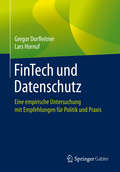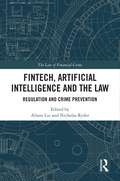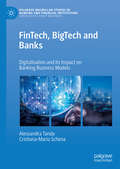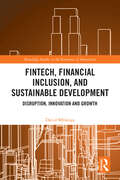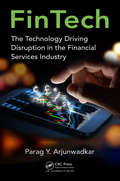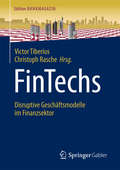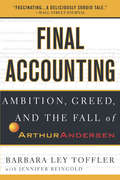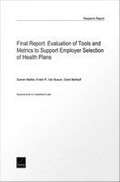- Table View
- List View
FinTech und Datenschutz: Eine empirische Untersuchung mit Empfehlungen für Politik und Praxis
by Gregor Dorfleitner Lars HornufDigitale Finanztechnologie, kurz FinTech, ist eine wichtige Antriebsfeder für Innovationen in der Finanzbranche. Ein Hauptanliegen der FinTech-Revolution ist es, dass Finanztransaktionen für Kundinnen und Kunden effizienter und transparenter durchgeführt werden. Im Ergebnis können diese Veränderungen zu mehr Wirtschaftswachstum und einem stabileren Finanzsystem beitragen. Die umfassende Verarbeitung von Nutzerdaten hat aber auch das Potential, neue unternehmerische und systemische Risiken hervorzurufen. Werden Nutzerdaten nicht sicher gespeichert, oder werden auf Basis von Big-Data-Anwendungen Erkenntnisse gewonnen, die dem Wohl der Nutzerinnen und Nutzer entgegenstehen, bedarf es einer effektiven Aufsicht und Regulierung.Die Autoren analysieren zunächst die am Markt tätigen Akteure und Marktsegmente. Der Schwerpunkt des Buches liegt auf einer empirischen Untersuchung der Datenschutzerklärungen deutscher FinTech-Unternehmen sowie der Veränderungen, die sich nach Inkrafttreten der Datenschutzgrundverordnung ergeben haben. Aus der empirischen Analyse, die eine Befragung zahlreicher Stakeholder von Aufsichts- und Regulierungsbehörden, der Finanz- und FinTech-Branche, führenden Unternehmensberatungen sowie Verbraucherschützern beinhaltet, werden Regulierungsbedarfe abgeleitet und konkrete Regulierungsempfehlungen entwickelt. Das Buch wurde für Wissenschaftler und Praktiker geschrieben und beinhaltet wichtige Erkenntnisse für Juristen, Ökonomen und jeden, der sich für FinTech oder Datenschutz interessiert.„Das wegweisende Werk der beiden ausgewiesenen Spezialisten bietet disziplinübergreifend eine umfassende und einzigartige Arbeitsgrundlage für das Verständnis der Datenschutz-Besonderheiten in der FinTech-Branche. Gerade für Juristen ist es für Rechtsanwendung wie -politik von außerordentlichem Wert.“– Prof. Dr. Sebastian Omlor, Direktor des Instituts für das Recht der Digitalisierung, Universität Marburg
FinTech, Artificial Intelligence and the Law: Regulation and Crime Prevention (The Law of Financial Crime)
by Nicholas Ryder Alison LuiThis collection critically explores the use of financial technology (FinTech) and artificial intelligence (AI) in the financial sector and discusses effective regulation and the prevention of crime. Focusing on crypto-assets, InsureTech and the digitisation of financial dispute resolution, the book examines the strategic and ethical aspects of incorporating AI into the financial sector. The volume adopts a comparative legal approach to: critically evaluate the strategic and ethical benefits and challenges of AI in the financial sector; critically analyse the role, values and challenges of FinTech in society; make recommendations on protecting vulnerable customers without restricting financial innovation; and to make recommendations on effective regulation and prevention of crime in these areas. The book will be of interest to teachers and students of banking and financial regulation related modules, researchers in computer science, corporate governance, and business and economics. It will also be a valuable resource for policy makers including government departments, law enforcement agencies, financial regulatory agencies, people employed within the financial services sector, and professional services such as law, and technology.
FinTech, BigTech and Banks: Digitalisation and Its Impact on Banking Business Models (Palgrave Macmillan Studies in Banking and Financial Institutions)
by Alessandra Tanda Cristiana-Maria SchenaThis Palgrave Pivot analyses the evolution of strategies and business models adopted by financial operators that employ technological solutions to deliver financial products and services. The analysis is performed on a proprietary dataset built on different sources that highlight important differences in strategical approaches taken by FinTech companies, TechFin and BigTech, and banks (traditional and digital native). For each type, the authors underline their distinctive patterns, strengths and weaknesses. The main focus of the analysis in on the European market that is investigated also in the light of the difference and similarities with other markets (such as US and China).The unbundling and re-bundling of productive processes in finance, the treatment of information and the level of innovation in the customer relationship highlight the intense change that the banking activities of new financial services providers are currently dealing with, especially the retail segment. Despite the main international banks’ implementation of innovative strategical approaches to take advantage of the digitalization of business and cope with competition, so far the level of the disruption brought by FinTech is not fully understood or widespread. This holds especially true for the smaller banks: the latter need to take a proactive approach to individuate a business model able to satisfy the new customer needs and the competitive pressure that are destined to increase and further evolve. This book addresses this and would appeal to academics, researchers and students of banking, FinTech and financial innovation alongside policy makers, regulatory authorities, FinTechs and banks.
FinTech, Financial Inclusion, and Sustainable Development: Disruption, Innovation, and Growth (Routledge Studies in the Economics of Innovation)
by David MhlangaThis book explores the significant impact of FinTech on the financial industry and how it could be used to promote legitimate development in the global economy. It takes readers on an engaging tour of the field of FinTech, immersing them in a thorough investigation of the technological advancements, creative business models, and regulatory issues that define the FinTech landscape.The book begins by documenting the rise of FinTech, providing historical context, and highlighting key milestones. It delves into the numerous technologies that have fuelled the FinTech revolution and offers valuable insights into the ongoing evolution of the financial industry and its implications for individuals, businesses, and society. It explores topics such as microfinance, digital lending, social impact investing, and sustainable finance, signalling the ability of FinTech to foster financial inclusion, reduce poverty, and drive sustainable economic growth in developing economies. The book takes into account ethical as well as regulatory considerations, and the importance of striking a balance between innovation and consumer protection. The book offers a comparative regional perspective and provides case studies of successful FinTech organizations from across the world. It concludes by providing an in-depth exploration of future trends and predictions, with a specific focus on emerging technologies such as ChatGPT and their potential impact.This will be a useful reference for researchers, scholars, and students, concerned with the changing dynamics of the industry in an increasingly digital and interconnected world.
FinTech: The Technology Driving Disruption in the Financial Services Industry
by Parag ArjunwadkarEverything that we know about the world of finance is changing before us. Innovation is happening constantly, despite the protests of the traditional financial industry. With all the new technology that we have today, it is almost mind-blowing to think about the kind of technology that we will have in another ten years or so. The change is going to keep coming, the only thing we can do is get on board with it. This book introduces the basics of FinTech and equips readers with the knowledge to get on the cutting edge of age we live in today.
FinTechs: Disruptive Geschäftsmodelle im Finanzsektor (Edition Bankmagazin)
by Victor Tiberius and Christoph RascheDieses Buch stellt bestehende FinTech-Geschäftsmodelle vor und diskutiert sie. Der Schwerpunkt liegt dabei nicht auf technischen, sondern auf betriebswirtschaftlichen Aspekten. Die Autoren decken mit ihren Beiträgen thematisch alle bereits von FinTechs angebotenen C2C-, B2C- und B2B-Finanzdienstleistungen ab.
Final Accounting: Ambition, Greed and the Fall of Arthur Andersen
by Barbara Ley Toffler Jennifer ReingoldA withering exposé of the unethical practices that triggered the indictment and collapse of the legendary accounting firm.Arthur Andersen's conviction on obstruction of justice charges related to the Enron debacle spelled the abrupt end of the 88-year-old accounting firm. Until recently, the venerable firm had been regarded as the accounting profession's conscience. In Final Accounting, Barbara Ley Toffler, former Andersen partner-in-charge of Andersen's Ethics & Responsible Business Practices consulting services, reveals that the symptoms of Andersen's fatal disease were evident long before Enron. Drawing on her expertise as a social scientist and her experience as an Andersen insider, Toffler chronicles how a culture of arrogance and greed infected her company and led to enormous lapses in judgment among her peers. Final Accounting exposes the slow deterioration of values that led not only to Enron but also to the earlier financial scandals of other Andersen clients, including Sunbeam and Waste Management, and illustrates the practices that paved the way for the accounting fiascos at WorldCom and other major companies. Chronicling the inner workings of Andersen at the height of its success, Toffler reveals "the making of an Android," the peculiar process of employee indoctrination into the Andersen culture; how Androids—both accountants and consultants--lived the mantra "keep the client happy"; and how internal infighting and "billing your brains out" rather than quality work became the all-important goals. Toffler was in a position to know when something was wrong. In her earlier role as ethics consultant, she worked with over 60 major companies and was an internationally renowned expert at spotting and correcting ethical lapses. Toffler traces the roots of Andersen's ethical missteps, and shows the gradual decay of a once-proud culture.Uniquely qualified to discuss the personalities and principles behind one of the greatest shake-ups in United States history, Toffler delivers a chilling report with important ramifications for CEOs and individual investors alike.
Final Basel III Modelling: Implementation, Impact and Implications
by Ioannis Akkizidis Lampros KalyvasThis book provides a concise and practical guidance on the implementation analysis of the new revised standards of the Basel Committee on Banking Supervision (BCBS) on the supervision of the international banking system. Based on publicly available data on default rates and realised loss-given-default rates, it provides an analysis of credit and market risk, assessing the extent to which the new framework on risk-based and leverage ratio requirements affects the modelling of banking risks. Moreover, it provides a detailed analysis of the Fundamental Review of the Trading Book (FRTB), which changes the philosophy for the risk valuation and capital requirements of the market risk, and of the latest developments on the credit valuation adjustments (CVA) framework. It also examines the impact of the final calibration of operational risk parameters on the level of capital requirements. It provides an overview of the modelling properties that govern the application of the internal models for credit and market risk, and provides evidence on the overall impact on banks’ cost of funding due to the implementation of Basel reforms as shaped in December 2017. Finally, the book provides practical examples and hands-on applications for assessing the new BCBS framework.
Final Journey: The Untold Story of Funeral Trains
by Nicolas WheatleyThis new history reveals the previously untold story of why and how trains have been used to transport the dead, enabling their burial in a place of significance to the bereaved. Profusely illustrated with many images, some never previously published, Nicolas Wheatley’s work details how the mainline railways carried out this important yet often hidden work from the Victorian age to the 1980s, as well as how ceremonial funeral transport continues on heritage railways today. From royalty, aristocrats and other VIPs (including Sir Winston Churchill and the Unknown Warrior) to victims of accidents and ordinary people, Final Journey explores the way in which these people travelled for the last time by train before being laid to rest.
Final Report: Evaluation of Tools and Metrics to Support Employer Selection of Health Plans
by Soeren Mattke Kristin R. Van Busum Grant MartsolfThe Patient Protection and Affordable Care Act (ACA) places strong emphasis on quality of care as a means to improve outcomes for Americans and promote the financial sustainability of our health care system. Included in the ACA are new disclosure requirements that require health plans to provide a summary of benefits and coverage that accurately describes the benefits under the plan or coverage. These requirements are intended to support employers' procurement of high-value health coverage for their employees. This report attempts to help employers understand the structural differences between health plans and the performance dimensions along which plans can differ, as well as to educate employers about available tools that can be used to evaluate plan options. The report also discusses the extent to which these and other tools or resources are used by employers to inform choices between health plans.
Final Voyage of the Challenger
by George Iwaki Oscar HauptmanProvides a summary of technical and organizational details that led to the decision to launch the Challenger Space Shuttle, and to the ensuing accident. Details of design and testing milestones of the Space Shuttle, with a focus on the Solid Rocket Booster, offer opportunities for project management and organizational analysis. NASA's risk management structure and its use for the Space Shuttle program exposes students to issues of risk associated with the use of technology. Principles of engineering versus managerial decision making, the role of professional knowledge, and issues related to data representation, and qualitative versus quantitative analysis are addressed. Some issues of professional ethics and individual responsibilities, as related to complex decision making in a technology intensive environment are presented in a context of a crisis situation. The analysis of the case should include assessment of project management, and ideas about organizational changes to avoid recurrence.
Finalizing a Deal between Riva Corporation and Charlton Corporation: Charlton's Internal Deliberation (A) - Charlton CEO
by Andy Zelleke Anthony J. MayoExercise
Finalizing a Deal between Riva Corporation and Charlton Corporation: Charlton's Internal Deliberation (A) - Charlton CEO
by Andy Zelleke Anthony J. MayoExercise
Finalizing a Deal between Riva Corporation and Charlton Corporation: Charlton's Internal Deliberation (B) - Charlton COO
by Andy Zelleke Anthony J. MayoExercise
Finalizing a Deal between Riva Corporation and Charlton Corporation: Charlton's Internal Deliberation (C)-Charlton Independent Director 1
by Andy Zelleke Anthony J. MayoExercise
Finalizing a Deal between Riva Corporation and Charlton Corporation: Charlton's Internal Deliberation (D) - Charlton Independent Director 2
by Andy Zelleke Anthony J. MayoExercise
Finalizing a Deal between Riva Corporation and Charlton Corporation: Charlton's Internal Deliberation (E) - Charlton Independent Director 3
by Andy Zelleke Anthony J. MayoExercise
Finalizing a Deal between Riva Corporation and Charlton Corporation: Riva's Internal Deliberation (A) - Chief Administrative Officer
by Andy Zelleke Anthony J. MayoExercise
Finalizing a Deal between Riva Corporation and Charlton Corporation: Riva's Internal Deliberation (A) - Chief Administrative Officer
by Andy Zelleke Anthony J. MayoExercise
Finalizing a Deal between Riva Corporation and Charlton Corporation: Riva's Internal Deliberation (B)-CEO of Riva Business Unit 1
by Andy Zelleke Anthony J. MayoExercise
Finalizing a Deal between Riva Corporation and Charlton Corporation: Riva's Internal Deliberation (C)-CEO of Riva Business Unit 2
by Andy Zelleke Anthony J. MayoExercise
Finalizing a Deal between Riva Corporation and Charlton Corporation: Riva's Internal Deliberation (D) - Riva's CFO
by Andy Zelleke Anthony J. MayoExercise
Finalizing a Deal between Riva Corporation and Charlton Corporation: Riva's Internal Deliberation (E) - Riva's Chief Strategy Officer
by Andy Zelleke Anthony J. MayoExercise
